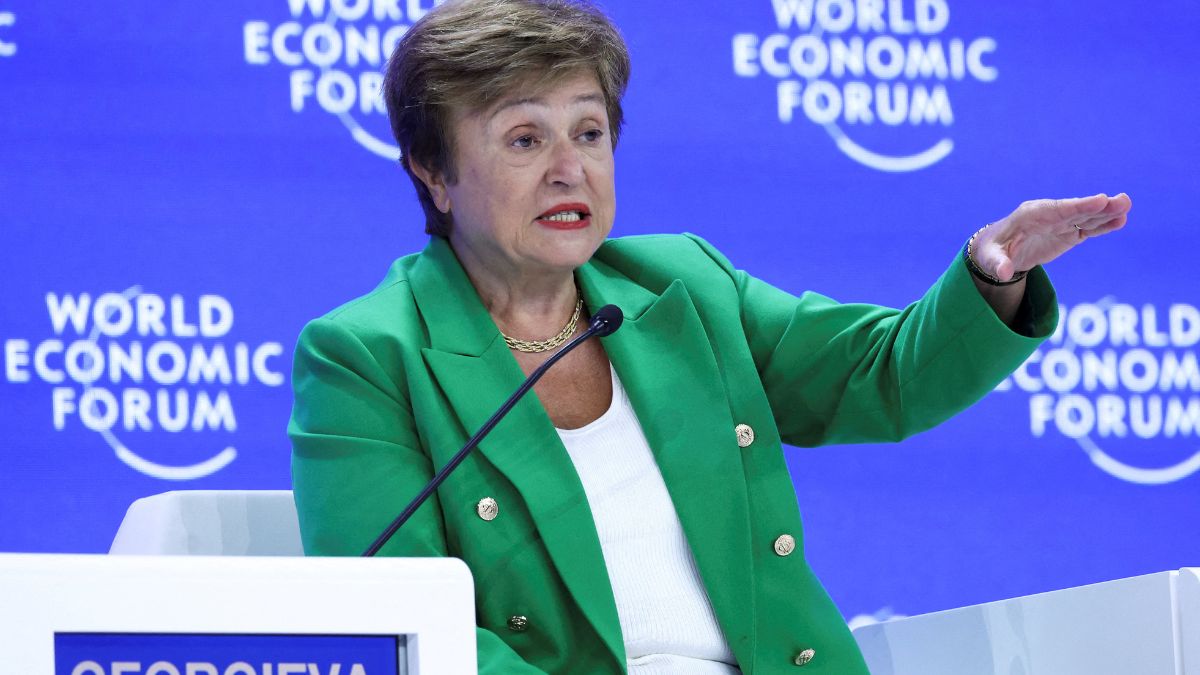The world will experience weakened economic growth and increased inflation as a result of US President Donald Trump’s disruption of global trade, according to International Monetary Fund’s (IMF) Managing Director Kristalina Georgieva.
However, the world is not expected to experience a global recession for now, said Georgieva.
In a speech in Washington DC, Georgieva on Thursday admitted that there are genuine concerns of unfair effects of globalisation, but said that disruption of the global trade —as Trump is doing— is not the solution. She was speaking ahead of the release of IMF’s growth projections next week.
Georgieva has become the latest international business leader to give a grim outlook as a result of tariffs. So far, World Bank President Ajay Banga, US Federal Reserve Chairman Jerome Powell, and JPMorgan Chase CEO Jamie Dimon, among others, have sounded alarms.
Trade disruptions have consequences, warns IMF chief
Georgieva said that even though the trade would go on despite tariffs and other barriers, there would be consequences.
“Ultimately, trade is like water. When countries put up obstacles in the form of tariff and non-tariff barriers, the flow diverts. Some sectors in some countries may be flooded by cheap imports; others may see shortages. Trade goes on, but disruptions incur costs,” said Georgieva.
The latest projection of a global slowdown is a sharp turnaround from the IMF’s projection earlier this year when it had revised expected global growth upward to 3.3 per cent for this year before Trump’s unleashed his trade war on the world. Now, HSBC Holdings’ economists have downgraded their projection for global growth to 2.5 per cent from 2.7 per cent.
The IMF’s fresh projections to released next week will be the clearest indicator the extent of Trump’s damage to the world economy.
However, there is some solace in the fact that Georgieva ruled out a global recession — at least for now.
Impact Shorts
More ShortsAdmitting the not everyone admitted from globalisation, Georgieva said, “Global economic integration has lifted vast numbers of people out of poverty and made the world as a whole better off. But not everyone benefited. Many blame the international economic system for the perceived unfairness in their lives.”
As for the solution, Georgieva said that “the goal must be to secure a settlement among the largest players that preserves openness and delivers a more level playing field — to restart a global trend toward lower tariff rates while also reducing non-tariff barriers and distortions”.
Georgieva said that the world must use the crisis to create a “better balanced, more resilient” economy.
China must boost private consumption, Europe should integrate national economies further, European countries should spend more on defence and infrastructure more like Germany, and the United States should address the “core macroeconomic policy challenge” of bringing down national debt, according to Georgieva


)

)
)
)
)
)
)
)
)



